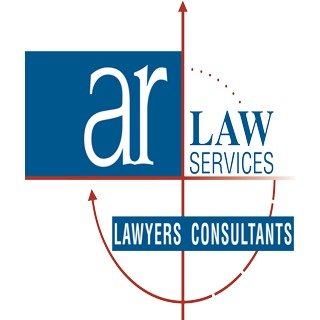Best Education Law Lawyers in Australia
Share your needs with us, get contacted by law firms.
Free. Takes 2 min.
Or refine your search by selecting a city:
List of the best lawyers in Australia
About Education Law in Australia
Education Law in Australia governs the rights and responsibilities within the education system, including the management of schools, compliance with educational standards, student rights, teacher obligations, and discrimination issues. It covers various levels of education from early childhood through tertiary education and vocational training. The laws are crafted to ensure educational settings are safe, equitable, and conducive to learning, protecting both educators and students.
Why You May Need a Lawyer
There are several situations where individuals may require legal assistance related to Education Law:
- Disputes over student rights, such as disciplinary actions or special educational needs.
- Allegations of discrimination or bullying within the educational environment.
- Issues related to the compliance of schools or educators with educational standards and regulations.
- Legal challenges involving teacher contracts or employment conditions.
- Complexities in school governance or policy development.
Local Laws Overview
Australia’s Education Law is shaped by both federal and state regulations, which encompass policies on education access, curriculum standards, teacher qualifications, and student welfare. Key aspects include:
- The Education and Training Reform Act: Governs school registrations, teacher qualifications, and home schooling provisions.
- Disability Standards for Education: Ensures students with disabilities are afforded equal educational opportunities.
- Workplace Health and Safety Regulations: Apply to schools to maintain a safe environment for both staff and students.
- Privacy Laws: Protect the personal information of students and faculty, restricting unauthorized access and use.
Frequently Asked Questions
What rights do students have under Australian Education Law?
Students have rights to safe learning environments, equal educational opportunities, freedom from discrimination, and the right to privacy and respect for their personal information.
Are there laws protecting against bullying in schools?
Yes, both federal and state laws require schools to implement anti-bullying policies, and there are legal frameworks to address incidents involving student harassment or bullying.
How can parents challenge a school's decision they believe is unfair?
Parents can request a formal review of the decision through the school’s complaint management process. If unsatisfied, they can escalate the matter to educational ombudsmen or consult an education lawyer.
What is the process for handling discrimination in education?
Incidents can be reported to school authorities for initial resolution. Further action can be taken by lodging a complaint with relevant state or federal human rights bodies.
Are home-schooling regulations strict in Australia?
Home-schooling is regulated with requirements varying across states. Parents must register with educational departments and ensure education standards are met.
Do schools need to comply with privacy laws regarding student information?
Yes, schools must comply with the Privacy Act 1988, which mandates the protection and proper handling of student personal data.
Can teachers take legal action if they experience workplace harassment?
Teachers can lodge complaints through their school's internal processes or seek legal advice for action under relevant workplace safety and anti-discrimination laws.
What laws govern the educational accreditation of schools?
Schools must comply with state and territory-specific accreditation laws, which include standards related to curriculum delivery, staffing, and infrastructure.
Are there legal protections for religious education in Australia?
The Australian Education Act supports the provision of religious education as part of the public and private education systems, with considerations for anti-discrimination laws.
How does the law ensure quality in vocational training and higher education?
Quality is maintained through regulatory bodies like ASQA (Australian Skills Quality Authority) and TEQSA (Tertiary Education Quality and Standards Agency), depending on the level of education.
Additional Resources
For further information and assistance, consider the following resources:
- The Australian Government Department of Education and Training
- The Australian Human Rights Commission for discrimination issues
- State-specific education departments and regulatory bodies
- The Australian Education Union for educator rights and issues
- The Education Council for national educational policy frameworks
Next Steps
If you believe you need legal assistance in Education Law, consider consulting with a lawyer specializing in education cases. Start by gathering documentation related to your issue, such as correspondence, school policies, or specific incidents. Contact legal aid associations for assistance or search for an education lawyer through legal directories. Being well-prepared can help you effectively communicate your position and explore available legal remedies.
Lawzana helps you find the best lawyers and law firms in Australia through a curated and pre-screened list of qualified legal professionals. Our platform offers rankings and detailed profiles of attorneys and law firms, allowing you to compare based on practice areas, including Education Law, experience, and client feedback.
Each profile includes a description of the firm's areas of practice, client reviews, team members and partners, year of establishment, spoken languages, office locations, contact information, social media presence, and any published articles or resources. Most firms on our platform speak English and are experienced in both local and international legal matters.
Get a quote from top-rated law firms in Australia — quickly, securely, and without unnecessary hassle.
Disclaimer:
The information provided on this page is for general informational purposes only and does not constitute legal advice. While we strive to ensure the accuracy and relevance of the content, legal information may change over time, and interpretations of the law can vary. You should always consult with a qualified legal professional for advice specific to your situation.
We disclaim all liability for actions taken or not taken based on the content of this page. If you believe any information is incorrect or outdated, please contact us, and we will review and update it where appropriate.
Browse education law law firms by city in Australia
Refine your search by selecting a city.









